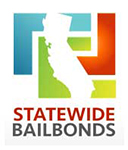04 Aug Acceptable Forms of Bail | Types of Bail
Bail helps ensure that defendants show up in court.
Bail is cash or its equivalent (such as a bail bond) that a court accepts in exchange for allowing a defendant to remain at liberty until the conclusion of the case. Bail creates a financial incentive for defendants to make all required court appearances. Should a defendant fail to appear in court, the bail is forfeited (that is, the court keeps the cash or collects on the bond) and the judge issues an arrest warrant. Bail jumping (not returning to court when required) is itself a crime.
What Will Courts and Jails Accept as Bail?
- Bail is usually posted in one of the following ways:
- by paying the full amount of the bail. For instance, if the police or a court set bail at $1,000, a defendant may post (pay) this amount in cash or with a credit card
- by purchasing a bond from a bail bond seller, who typically charges a nonrefundable premium of about 10% of the amount of bail. For example, if the police or a court set bail at $1,000, a defendant can usually purchase a bail bond for $100. The bail bond seller has to forfeit the full bail amount to the court if the defendant who purchased the bond fails to appear in court, or
- by depositing with the court property worth at least the full amount of the bail in some courts. For example, if the police or court set bail at $1,000, and a suspect owns a fancy watch worth at least that amount, the defendant may be able to use the watch to post bail.
Collateral for a Bail Bond
Often, bail bond sellers ask for collateral in addition to the cost of the bail bond. This means that the bond seller must be given a financial interest in enough real property (such as a house) or personal property (such as a car) to cover the bond seller’s loss if the arrested person jumps bail, leaving the bond seller liable for the full amount of bail. Collateral adds to the cost of a bail bond by tying up the collateralized property until the case concludes. This means, for example, a person is not free to sell property while it serves as collateral. Moreover, bond sellers often refuse to do business with an arrested person who lacks the ability to post collateral.
Court-Financed Bail
Some states offer a hybrid between posting full cash bail and buying a bail bond from a private bail bond seller. Under the hybrid system, a qualifying arrested person pays a fee of 10% of the full cash bail directly to the court; collateral may also be required. Unlike when a bail bond is purchased from a private seller, the 10% fee (less an administrative charge) is eventually returned if the arrested person makes all required court appearances. Of course, if a defendant fails to appear at a required hearing, the defendant is liable for the full cash bail amount, as well as being subject to rearrest and a new criminal charge of bail jumping.
This article was excerpted from The Criminal Law Handbook, by Paul
Bergman, J.D., and Sara J. Berman, J.D.

